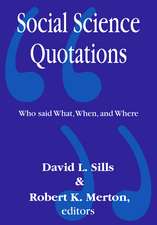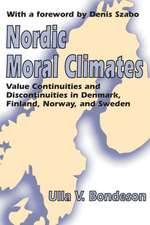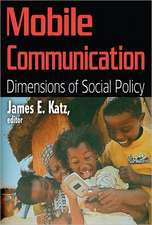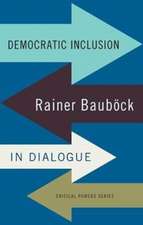Organizations in Action: Social Science Bases of Administrative Theory: CLASSICS IN ORGANIZATION & MANAGEMENT SERIES
Autor James D. Thompsonen Limba Engleză Paperback – 30 apr 2003
Organizations in Action is a classic multidisciplinary study of the behavior of complex organizations as entities. Previous books on the subject focused on the behavior of people in organizational contexts, but this volume considers individual behavior only to the extent that it helps explain the nature of organizations. James D. Thompson offers 95 distinct propositions about the behavior of organizations, all relevant regardless of the culture in which they are found.
Thompson classifies organizations according to their technologies and environments. That organizations must meet and handle uncertainty is central to his thesis. Organizations in Action is firmly grounded in concepts and theories in the social and behavioral sciences. While it does not offer an actual theory of administration, the book successfully extends the scientific base upon which any emerging administrative theory must rest. This classic work is of continuing value to organizational and management specialists, behavioral scientists, sociologists, administrators, and policymakers.
| Toate formatele și edițiile | Preț | Express |
|---|---|---|
| Paperback (1) | 339.65 lei 3-5 săpt. | +15.70 lei 7-13 zile |
| Taylor & Francis – 30 apr 2003 | 339.65 lei 3-5 săpt. | +15.70 lei 7-13 zile |
| Hardback (1) | 1000.27 lei 6-8 săpt. | |
| Taylor & Francis – 14 iul 2017 | 1000.27 lei 6-8 săpt. |
Preț: 339.65 lei
Nou
65.00€ • 67.61$ • 53.66£
Carte disponibilă
Livrare economică 22 martie-05 aprilie
Livrare express 08-14 martie pentru 25.69 lei
Specificații
ISBN-10: 0765809915
Pagini: 222
Dimensiuni: 156 x 234 x 13 mm
Greutate: 0.27 kg
Ediția:Revised
Editura: Taylor & Francis
Colecția Routledge
Seria CLASSICS IN ORGANIZATION & MANAGEMENT SERIES
Locul publicării:Oxford, United Kingdom
Cuprins
INTRODUCTION TO THE TRANSACTION EDITION: THOMPSON'S BRIDGE OVER TROUBLED WATERS, PREFACE, Part One, 1. Strategies for Studying Organizations, 2. Rationality in Organizations, 3. Domains of Organized Action, 4. Organizational Design, 5. Technology and Structure, 6. Organizational Rationality and Structure, 7. The Assessment of Organizations, Part Two, 8. The Variable Human, 9. Discretion and Its Exercise, 10. The Control of Complex Organizations, 11. The Administrative Process, 12. Conclusion, BIBLIOGRAPHY, NAME INDEX, SUBJECT INDEX
Notă biografică
James D. Thompson
Descriere
Organizations act, but what determines how and when they will act? There is precedent for believing that the organization is but an extension of one or a few people, but this is a deceptively simplified approach, and in reality makes any generalization in organizational theory enormously difficult. Modern-day organizations -- manufacturing firms, hospitals, schools, armies, community agencies -- are extremely complex in nature, and several strategies, employing a variety of disciplines, are needed to gain a proper understanding of them.
Organizations in Action is a classic multidisciplinary study of the behavior of complex organizations as entities. Previous books on the subject focused on the behavior of people in organizational contexts, but this volume considers individual behavior only to the extent that it helps explain the nature of organizations. James D. Thompson offers 95 distinct propositions about the behavior of organizations, all relevant regardless of the culture in which they are found.
Thompson classifies organizations according to their technologies and environments. That organizations must meet and handle uncertainty is central to his thesis. Organizations in Action is firmly grounded in concepts and theories in the social and behavioral sciences. While it does not offer an actual theory of administration, the book successfully extends the scientific base upon which any emerging administrative theory must rest. This classic work is of continuing value to organizational and management specialists, behavioral scientists, sociologists, administrators, and policymakers.

























